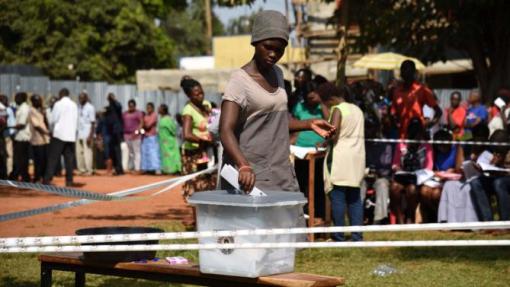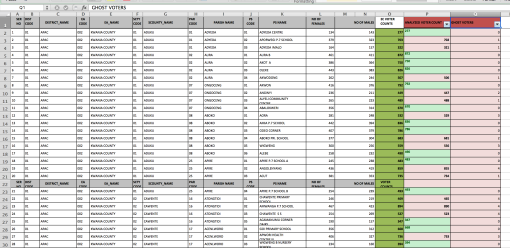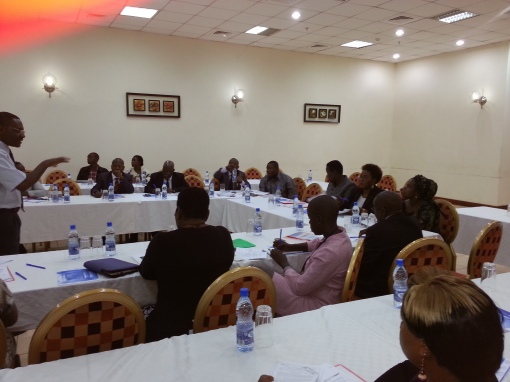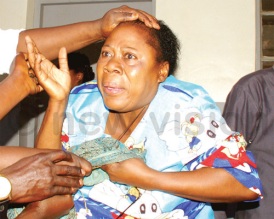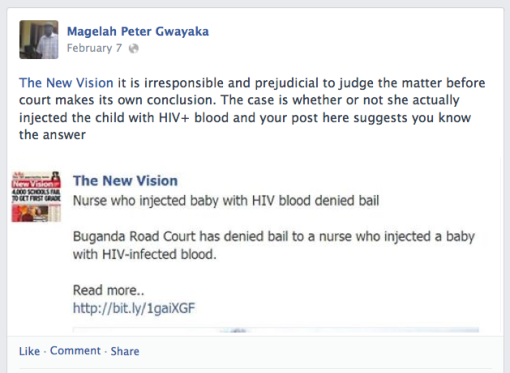Ugandans went to polls this morning to decide who takes the country’s top job. There are 8 candidates in the race but the two dominant contenders are; Yoweri Kaguta Museveni (who is trying to extend his 30 year old regime) and Forum for Democratic Change’s, Dr. Kizza Besigye (who is contending for the forth time).
In Kampala, the capital, voting started between 2 to 7 hours late at most of the polling stations. Voters who turned up at 6am to queue up, anticipating of start casting their votes at 7am were disappointed when they learned that the Electoral Commission (EC) had NOT delivered the ballots and other supplies on time. The voters braved the hot sun for hours waiting for the commission to deliver ballot papers and boxes. Some of the polling stations received the ballot papers 45 minutes before the 4pm, when the voting exercise was set to end. Kampala and neighboring Wakiso are believed to be opposition strongholds and the delay to deliver voting material has been viewed as a deliberate act to deny the opposition the much-anticipated victory.
Live television coverage and social media updates from various parts of the country reveal that the process was mostly peaceful but with many inexcusable glitches caused by the EC. Cases of people found in possession of pre-ticked ballot papers have been reported around Kampala and Ntungamo. In fact, one polling officer allegedly issued two pre-ticked ballots in favour of Museveni to one of the voters – this caused some tension at the polling station.
This morning, the Uganda Communications Commission issued a directive to internet and mobile money service providers to block access to Twitter, Facebook and the mobile money transfer services. The ingenious citizens were one step a head of the technologically inept commission. They resorted to VPNs and Proxies to stay connected. Some of the incidents that happened at the polling stations were exposed on social media – with video and photo evidence.
The incidents Ugandans witnessed today show the problem with “Uganda’s democracy”, it is hooked to Museveni’s influence on the entire electoral process. These incidents assert fears expressed by Museveni’s contender that the vote was rigged long before the election day.
Museveni’s regime has mastered the art of not only keeping the opposition in check but also tightened its grip on the media making it impossible for journalists to report freely and openly about issues of service delivery, let alone election irregularities. The ruling NRM party has used the loopholes in the government’s institutionalized corruption to continue tightening its grip on power. The police and the army have on several occasions made controversial stands and remarks siding with the regime.
During the campaign period, the Ministry of Health and Ministry of Gender, Labour and Social Development have shown their support to Museveni through using public funds to sponsor TV commercials that are partisan. The adverts show how the government has focused on building and equipping hospitals, and creating opportunities for the youth in the past 30 years.
Museveni’s has used national television to openly intimidate people using the rhetoric that quite frankly suggests that if Ugandans vote him out of office, there will be no peace. Infact, the Secretary General of NRM, Justine Kasule Lumumba warned “the state will kill your children” if they try to disorganize stability and she added that “the government of NRM is NOT going anywhere”.
But Uganda’s problem is far beyond voting one man, Museveni, out of power. The problem is more about getting rid of a regime that has infested every public office, media house, corporate company with its own ideals and priorities at the expense of the needs and freedom of Ugandans.
Uganda has a very painful past and many quite frankly agree that let Museveni rule until he is tired. Ugandans just want peace and a peaceful transfer of power. This does not mean that many or even majority of Ugandans do not want change, but every time this discussion comes up the big question remains:
“At what cost?”
